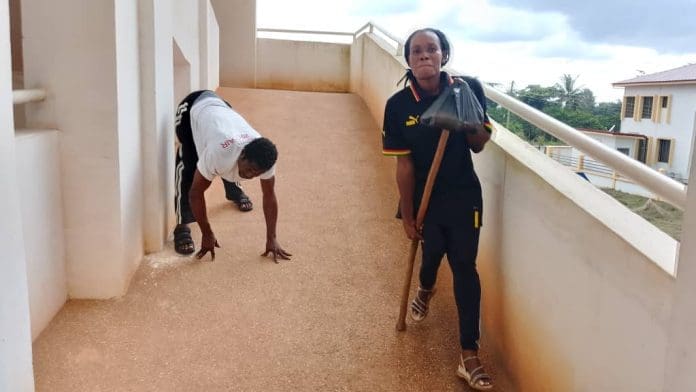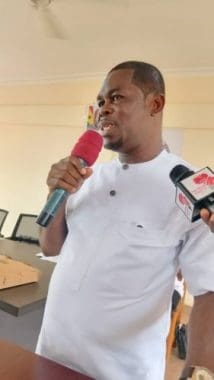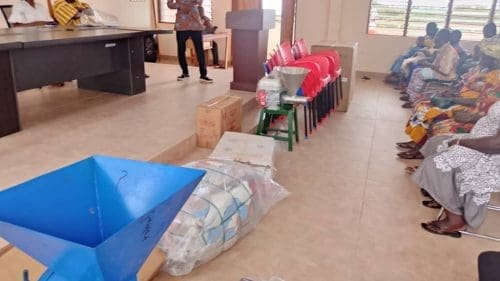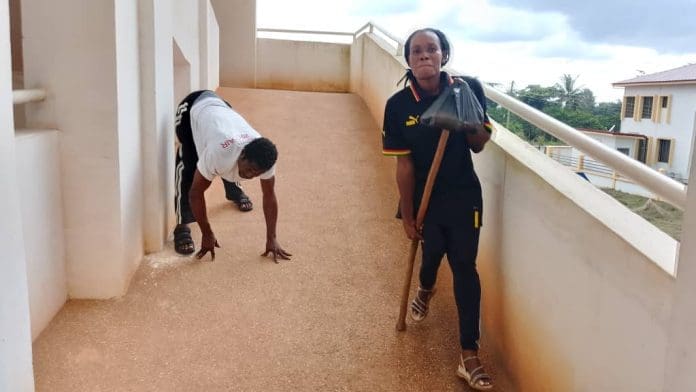
The District Chief Executive (DCE) of Ajumako-Enyan-Essiam in Ghana’s Central Region, Mr. Andrew Kojo Dodoo, has reaffirmed the government’s commitment to empowering persons with disabilities through education, healthcare, and start-up capital. He emphasized that such support is essential to ensuring that all citizens, regardless of ability, feel fully recognized and valued within the nation.
Mr. Dodoo made these remarks during a presentation ceremony held in Ajumako, where over seventy individuals with disabilities—including those with hearing and visual impairments—received financial assistance and business start-up items. The initiative forms part of the District Assembly’s allocation from the national Common Fund, which mandates a percentage be reserved to support persons with special needs.

In his opening address, Mr. Eric Frimpong Boateng, Head of Social Welfare and Community Development, explained that the selected beneficiaries would receive aid to pursue education, launch small businesses, and cover medical expenses. He urged recipients to use the support responsibly, highlighting the programme’s goal of reducing dependency on public almsgiving.
Mr. Ishak Adams, Chair of the District Disability Federation, expressed gratitude to President John Dramani Mahama for the continued support. He also called on individuals with disabilities who have yet to join the federation to reconsider, stressing that collective advocacy is key to accessing resources and amplifying their voices.
However, concerns were raised by Mr. Christopher Mensah, Chair of the Disability Fund Management Committee, who noted that some previous beneficiaries had misused their start-up items—such as deep freezers—by repurposing them for personal use rather than income generation. He appealed to current recipients to avoid such practices and focus on improving their livelihoods.

Mr. Dodoo reiterated that the support package includes funding for students and apprentices, as well as tools and resources for individuals with various impairments. He encouraged beneficiaries to maintain open communication with the District Assembly and to care for the items received.
The distribution included cheques ranging from GHS 40,000 to GHS 60,000, along with items such as charcoal bags, pepper, fufu pounding machines, sewing machines, cocoa spraying equipment, plastic chairs for rental businesses, deep freezers, and second-hand clothing.

Among the recipients was a 33-year-old woman from Enyan Denkyira, who received GHS 4,000 to expand her mobile money business. Another beneficiary, Enoch Obeng from Breman Essiam, shared his emotional journey. Once employed in Accra, he fell ill and was abandoned by family and friends. Facing despair, he contemplated suicide—until he was contacted by the Social Welfare office and offered a pepper grinding machine. The gesture, he said, restored his hope and gave him a means to earn a living.
Mr. Obeng concluded by appealing to the public for a wheelchair or mobility aid to help him move more freely and continue his work.
